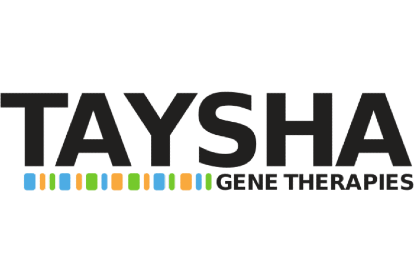CMTA and Taysha Gene Therapies Announce Collaboration for CMT4A

(Glenolden, PA, November 2, 2021) The Charcot-Marie-Tooth Association Strategy to Accelerate Research (CMTA-STAR) today announced a venture philanthropy grant to Taysha Gene Therapies (Nasdaq: TSHA), a patient-centric, pivotal-stage gene therapy company focused on developing and commercializing AAV-based gene therapies for the treatment of monogenic diseases of the central nervous system (CNS) in both rare and large patient populations, for undertaking a CMT4A gene therapy project.
CMT, a degenerative neuromuscular disease, recently entered the national spotlight when country music legend Alan Jackson announced he was diagnosed with the disease. CMT affects the long, or peripheral, nerves to the hands and feet. As the nerves die, the muscles around them follow suit. CMT4A, as a subtype of CMT, is caused by a mutation in the GDAP1 gene. Replacement of the GDAP1 gene is a potential therapeutic option for CMT4A.
Taysha and the CMTA will jointly fund the project at UT Southwestern under the direction of Drs. Xin Chen and Steven Gray (co-principal investigators). The goal of the project is to directly deliver the GDAP1 gene with adeno-associated viral 9 (AAV9) to stop the neuropathy that happens in CMT4A. The findings from this project will be critical in advancing research that will potentially lead to clinical trials for CMT4A patients.
All of the CMTA’s research efforts are consolidated under the banner of STAR—which brings together the world’s largest network of biotech research partners, CMT scientists, clinicians and patients—and funds more CMT grants than any other philanthropic organization. Since 2008, the CMTA has invested more than $17 million in STAR, with plans to invest another $10 million in the next few years.
*Disclosures: UT Southwestern and Drs. Chen and Gray hold financial interest in Taysha. Dr. Gray serves as Chief Scientific Advisor for Taysha and is on the CMT Foundation advisory board.
About CMT
Charcot-Marie-Tooth disease, or CMT, was named after the three physicians who first described it: Drs. Jean-Martin Charcot, Pierre Marie, and Howard Henry Tooth. CMT is a group of like diseases caused by inherited genetic mutations that damage the peripheral nerves outside of the brain and spinal cord. Scientists have identified over 100 different gene mutations causing CMT. Most people (90%) have one of four types of CMT: CMT 1A (PMP22); CMT 1B (MPZ); CMT 2A (MFN2) and CMT 1X (GJB1). It is estimated that CMT affects 3+ million people worldwide, regardless of gender, race, or ethnicity. More information can be found at https://www.cmtausa.org/understanding-cmt/what-is-cmt
About the CMTA
The CMTA is the largest philanthropic funder of CMT research worldwide. The CMTA’s Strategy to Accelerate Research (STAR) brings the best CMT researchers, clinicians, and experts in therapy development together with pharmaceutical and biotechnology companies and patients to expedite the development of treatments for CMT. The CMTA is also actively working to help improve the quality of life for all families living with CMT by offering educational programs and materials, hosting patient and professional conferences, providing support to families through its nationwide branch system through North America and more. More information can be found at www.cmtausa.org.
About Taysha Gene Therapies
Taysha Gene Therapies (Nasdaq: TSHA) is on a mission to eradicate monogenic CNS disease. With a singular focus on developing curative medicines, we aim to rapidly translate our treatments from bench to bedside. We have combined our team’s proven experience in gene therapy drug development and commercialization with the world-class UT Southwestern Gene Therapy Program to build an extensive, AAV gene therapy pipeline focused on both rare and large-market indications. Together, we leverage our fully integrated platform—an engine for potential new cures—with a goal of dramatically improving patients’ lives. More information is available at http://www.tashagtx.com





